- Home
- Brandon Sanderson
Mitosis Page 3
Mitosis Read online
Page 3
“So awful,” one of them said, a sneer on his lips. “Jason couldn’t write a riff to save his life. The same four chords, over and over and over.”
I frowned, then scrambled for my gun. I sat in the middle of the group of clones. Some had moved out of the room.
“That’s odd,” Tia said.
I need a way out, I thought.
“Even the ones outside are vibrating a little bit, David. I can see it on the cameras. Surely they can’t hear the music.”
“They’re connected,” I said, coughing. I stumbled to my feet, holding my rifle in one hand, ripping the mobile from my shoulder with the other. I flashed it about, trying to ward the clones off. “We need more music,” I said. “A lot of it, loud as we can get it. That—”
The clones charged me. Ignoring the danger, they piled on top of me, reaching for my mobile, trying to rip it out of my fingers. Those nearest to me started to melt, but they still grabbed at my arm, fighting even as the flesh sloughed off their bones.
I backed into a corner, then noticed a sliver of light coming from above. A window, covered with a board.
To the sound of thumping rock music, I held the clones at bay, leaving a half dozen of them melting on the floor. Others gathered opposite me in the room, faces shadowed in the dim room. “How did it really happen?” they asked in unison. “Which Epic killed Steelheart, and how did you take the credit?”
“It’s not like Steelheart was immortal,” I said.
“He was a god.”
“He was a cursed man,” I said, inching my way toward the window. The gooey remnants of bone and flesh steamed off me, evaporating, leaving my clothing as dry as if nothing had happened.
“Just like you are. I’m sorry.”
The clones stepped forward. I used the music to melt those who drew close, but they didn’t seem to care. They marched on, falling to the ground, dissolving to nothing. They kept coming at me until only one stood in the doorway, though I could see shadows of a few more waiting outside. Why were they killing themselves?
One toward the back took out his handgun. It didn’t break as he raised it. Sparks. Mitosis had just been trying to reduce his numbers to make the copies more stable.
I cried out, jumping onto the desk. I had to drop my rifle to rip the board off the window.
A large crack sounded from behind. I felt an immediate thump in my right side, just under my arm—like someone had punched me.
Back in the factory, we would watch old movies every night, after work was done. They’d played on an old television hung from the cafeteria wall. Getting shot didn’t feel like it looked in those shows. I didn’t gasp and collapse to the ground. I didn’t even realize I’d been shot at first. I thought the clones had thrown something at me.
No pain. Just heat on my side.
That was the blood.
I stared down at the wound. The bullet had ripped out a chunk of flesh just beneath my armpit before cutting through my upper arm. It was messy, all warm and wet. My hand didn’t work right, wouldn’t grip.
I’d been shot. Calamity … I’d been shot.
For a terrifying moment, that was all I could think about. People died when they got shot. I started to shake; the room seemed to be trembling. I was going to die.
Another shot bounced off the wall beside my head.
You’ll die way sooner if you don’t move! a piece of me thought. Now!
I spun and threw my mobile at Mitosis. That worked; when the music got close, his clone wavered and melted. The mobile came to rest in the doorway, warding off those outside. I still had in my earpiece, though, which was connected wirelessly.
Somehow, I gathered the presence of mind to haul myself by one arm up and out the window. I tumbled into sunlight and collapsed to the ground outside.
I’d often heard that it wasn’t the bullet wound that killed you—it was the shock. The horror of being hit, the panicked sense of terror, prevented you from getting out of danger and seeking help.
I slammed one hand over the hole in my side, which was worse than the hit in my arm, and squeezed the wound shut as I pressed my back against the wall.
“Tia?” I said. I figured I was still close enough to the mobile for the earpiece to work. I wasn’t sure how far I’d have to go before I lost reception.
“David!” Her voice came into my ear. “Sparks! Sit tight. Abraham is on his way.”
“Can’t sit,” I said with a grunt, climbing to my feet. “Clones are coming.”
“You’ve been shot!”
“In the side. Legs still work.” I stumbled away, toward the river. I remembered there being some inlets to the understreets there.
Tia cursed on the line, her voice starting to fuzz as I hobbled away from the hotel. Fortunately, it seemed that Mitosis hadn’t anticipated my actually escaping this way. Otherwise, he’d already have clones back here.
“Calamity!” Tia said. “David, he’s multiplying. There are hundreds of him, running for you.”
“It’s okay. I’m a rhinoceros astronaut.”
She was silent a moment. “Oh, sparks. You’re going delusional.”
“No, no. I mean, I’m surprising. I’ll surprise him. What’s the most surprising thing you can think of? Bet it’s a rhinoceros astronaut.” The connection was fading. “I can hold out, Tia. You just find the answer to this. Get some music playing across the city, maybe on some copters. Play it loud. You’ll figure it out.”
“David—”
“I’ll distract him, Tia,” I said. “That’s my job.” I hesitated. “How am I doing?”
No reply. I was too far from the hotel.
Sparks. I was going to have to do this last part alone. I hobbled toward the river.
4
I tore off part of my shirt, wrapping it around my arm as I stumbled along; then I put my hand back to the side wound. I reached the stairs to the river and looked over my shoulder.
They came like a wave, a surge of identical figures scrambling along the street.
I cursed, then hobbled down the steps. Still, this was good. A terrible kind of good. So long as Mitosis was chasing me, he wasn’t hurting anyone or trying to take over the city.
I reached the bottom of the staircase as the flood of figures arrived, some jumping over the sides of the rail to skip a few stairs, others scrambling down each step.
I pushed myself faster toward a set of holes drilled into the wall just above the river. Air vents for the understreets; they’d be big enough to crawl in, but not by much. I reached one just before the clones and clambered inside, kicking away a hand that tried to grab my ankle. I managed to spin around, facing the opening, and backed away into the darkness.
Figures crowded around the tunnel opening, cutting off my light. One of them squatted down, looking at me. “Clever,” he said. “Going where only one of me can reach you at a time. Unfortunately, it also leaves you cornered.”
I continued to back away. I was losing strength, and my blood made my hands slippery on the steel.
Mitosis crawled into the tunnel, prowling forward.
A lot of Epics liked to think of themselves as predators, the step beyond humans. The apex of evolution. Well, that was idiocy. The Epics weren’t above humans. If anything, they were less civilized—more instinctual. A step backward.
That didn’t mean I wasn’t terrified to see that dark figure stalking me—to be confined in an endless tunnel with the thing as I slowly bled out.
“You’ll tell me the truth,” Mitosis said, getting closer. “I’ll wring it from you, little human. I’ll know how Steelheart really died.”
I met his gaze in the darkness.
“I wanna kiss you!” I shouted. “Like the wind kisses the ra-i-ain!”
I belted out the song as loudly as I could. Tia had played it earlier, and I knew the words, though I’d been too distracted by the whole getting-strangled-then-getting-shot thing to listen closely.
I’d heard it as a child, played time and ti
me again on the radio until I and pretty much everyone else got sick of it.
Mitosis melted in front of me. I stopped, breathing deeply, as a second clone crawled over the melting form of the first.
“Cute,” he growled. “How long can you sing, little human? How are you feeling? I smell your blood. It—”
“I’m gonna miss you,” I shouted, “like the sun misses the ra-i-ain!”
He melted.
“You realize,” the next one said, “that now I’m going to have to kill everyone in the city. Can’t risk them having heard these songs. I—”
Melt.
“Stop doing that!” the next one snapped. “You—”
Melt.
I kept at it, though my singing grew softer and softer with each clone I killed. One of them found a knife and passed it up the line. That didn’t melt; it just fell to the floor of the pipe each time one of them died. The next one picked it up and kept crawling.
Each clone got closer. I moved back farther in the tunnel until I felt a ledge behind me. The pipe turned down toward the understreets—and an assuredly fatal drop.
“I could shoot you, I suppose,” the next Mitosis said. “Well, shoot you again. But then I wouldn’t get the pleasure of cutting off pieces of you as you scream out the truth to me.”
I screamed out the next lyric, which proved to be a bad idea, because once I’d melted that Mitosis, I found myself slumping against the rounded wall of the small tunnel. I was close to blacking out.
The next Mitosis plucked the knife from the goo, holding it up and letting bits of his other self run down the blade and drip to the floor.
He shook his head. “I was trained classically, you know,” he said.
I frowned. This was a change from the talk of torture, murder, and other sunny topics. “What?”
“Trained classically,” Mitosis said. “I was the only one in that band who knew his way around an instrument. I wrote song after song, and what did we play? Those stupid, stupid riffs. The same chords. Every damn song.”
Something about this tweaked a part of my brain, like a piece of popcorn on fire because it cooked too long. But I couldn’t focus on it now; his talking had almost let him reach me. I sang. Weakly.
I didn’t have a lot of energy left. How long had it been? How much blood had I lost?
This Mitosis wavered, but as my voice faltered, he came back.
“I am beyond you, little human,” Mitosis said, and I could hear the smirk in his voice. “Now, let’s get on with my questions.”
He reached me, took me by the arm, and yanked.
That hurt. Somehow, during all the running and scrambling, I’d never noticed the pain. Shock.
I’d been in shock.
Now that pain came crashing down on me, an entire detonated building of agony. I found my voice and screamed.
“How did Steelheart die?” Mitosis asked.
“He died at the hands of an Epic,” I said, groaning.
“I thought so. Who did it?”
“He did it himself,” I whispered. “After I tricked him. He killed himself, but I caused it. He was brought down by a common man, Lawrence.”
“Lies!”
“Common people,” I whispered, “will bring you all down.”
He yanked my arm again, delivering pain in a spike of agony. What did it matter what I said? He wasn’t going to believe me. I closed my eyes and started to feel numb. It felt nice. Too nice.
Distantly, I heard music.
Singing?
A hundred voices. No, more. Singing in unison, the song that had blared earlier from my mobile. Their singing was far from perfect, but there was a force to it.
“No. What are you doing? Stay back!” Mitosis roared.
All those voices, singing. I could barely make out the words, but I could hear the progression of chords. It actually sounded pretty, since I could ignore the awful lyrics.
“I am an army unto myself! Stay back! I am the new emperor of this city! You are mine!”
I forced my eyes open. Mitosis, in front of me, shook and vibrated, though the song was distant.
The clones were all connected—and if enough of them were hearing the song, the effect transferred even to the ones who weren’t.
In a moment, the line of clones in the pipe screamed, holding their heads.
“Common people,” I whispered. “Who have had enough.”
Mitosis exploded, each clone popping in a sudden burst. Their deaths opened up a passage to the light outside. I blinked against the abrupt sunshine, and despite the confines, I could see what was out there. People, standing on the frozen steel river, in a mass. Thousands of them, dressed in suits, work clothing, uniforms. They sang together, almost more of a chant.
The people of Newcago had come.
5
“You’re unreasonably lucky, son,” Prof said, settling onto the stool beside my hospital bed. He was a solid man with greying hair, goggles tucked into the pocket of his shirt.
I flexed my hand. Prof’s healing powers—gifted to me under the guise of a piece of technology—had mended my wounds. I didn’t remember much about the last few hours. I’d lain in a daze, several city doctors working to keep me alive long enough for Prof to arrive.
I sat back against the headboard, breathing deeply, remembering the final moments with Mitosis.
They came to me clearly, though the time after that was muddy.
“How did she get them all there?” I asked. “The people?”
“The Emergency Message System,” Prof said. “Tia sent out a plea to everyone near the river, begging them to go to you and to sing along to the music she sent through their mobiles. They could easily have remained in hiding. Ordinary people have no business fighting Epics.”
“I’m an ordinary person.”
“Hardly. But it doesn’t matter.”
“It does, Prof.” I looked at him. “This will never work if they don’t start fighting.”
“Last time the people fought,” Prof said, “the Epics slaughtered millions and the country collapsed.”
“That’s because we didn’t know how to defeat them,” I said. “Now we do.”
Prof sighed and stood up. “I’ve been told not to antagonize you, to let you rest. We’ll talk about this later. You did well against Mitosis. He …” He hesitated.
“What?” I asked.
“Recently, Mitosis has been staying in Babylon Restored. Manhattan, as it used to be called.”
“That’s where you just visited.”
Prof nodded. “That he should come here when I went to scout Babiar … it smacks of him coming intentionally while I was gone. That couldn’t have happened, unless …”
“What?”
Prof shook his head. “We’ll talk later. Rest now. I need to think. And son, as well as you did, I want you to do some thinking too. What you did was risky. You can’t just keep rushing in, making snap decisions. You are not the leader of this team.”
“Yes sir.”
“We have an entire city’s worth of people to worry about now,” he said, walking toward the door to the small room, which was warmed by sunlight through an open window. “Sparks. That’s the one thing I never wanted.” His face seemed shadowed in that moment. Grim, along with something else. Something … darker.
“Prof,” I said, “how do Epics get their weaknesses?”
“It’s random,” he said immediately. “Epics’ weaknesses can be anything. They make about as much sense as the powers themselves—which is to say, none.” He frowned, looking at me. “You know that better than anyone, son. You’re the one who has studied them.”
“Yeah,” I said, looking out the window. “Mitosis’s weakness was his own music.”
“Coincidence.”
“Hell of a coincidence.”
“Well, maybe the weakness wasn’t really the music,” Prof said. “Maybe it was performance anxiety, or insecurity or the like. The music just reminded him of that.”
<
br /> That was probably right. Still …
“He loathed the music,” I said. “His own art. There’s something here, Prof. Something we haven’t noticed yet.”
“Perhaps.” Prof lingered in the doorway. “Abraham sent me with a message.”
“Which is?” I vaguely remembered Abraham pulling me out of the tunnel and carrying me to the hospital.
Prof frowned. “His exact words were ‘Tell him he was right about this city … so I’ll forgive him about the hot dog. Just this once.’ ”
The Reckoners series
Available Now
BRANDON SANDERSON is the author of the internationally bestselling Mistborn trilogy, and he was chosen to complete Robert Jordan’s The Wheel of Time series. His books have been published in more than twenty-five languages and have sold millions of copies worldwide. He lives and writes in Utah. To learn more about Brandon and his books, visit him at brandonsanderson.com.

 Steelheart
Steelheart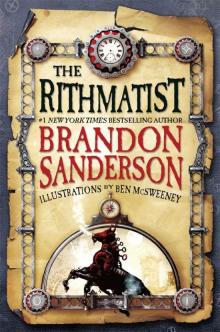 The Rithmatist
The Rithmatist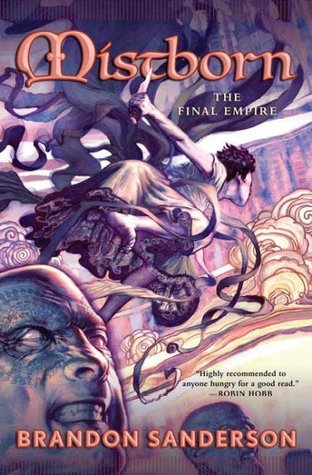 Mistborn: The Final Empire
Mistborn: The Final Empire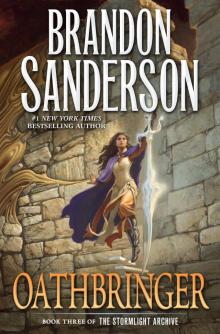 Oathbringer
Oathbringer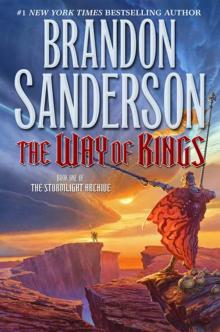 The Way of Kings
The Way of Kings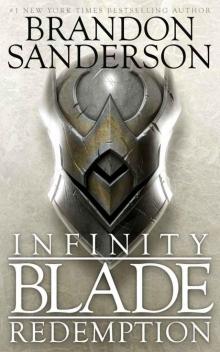 Redemption
Redemption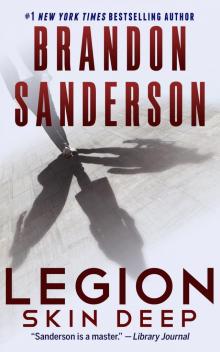 Skin Deep
Skin Deep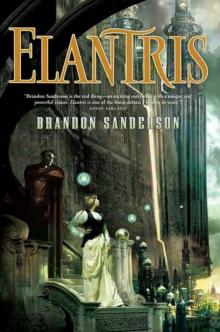 Elantris
Elantris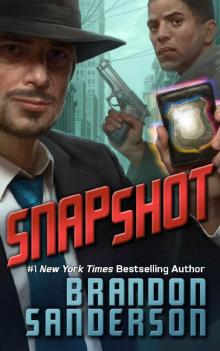 Snapshot
Snapshot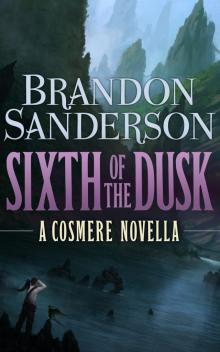 Sixth of the Dusk (Cosmere)
Sixth of the Dusk (Cosmere)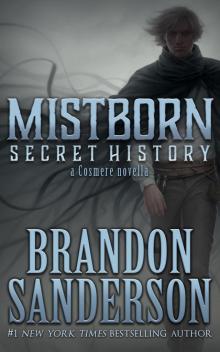 Mistborn: Secret History
Mistborn: Secret History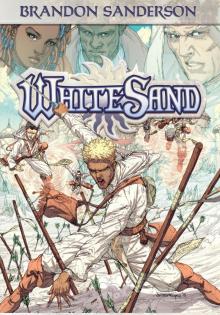 White Sand, Volume 1
White Sand, Volume 1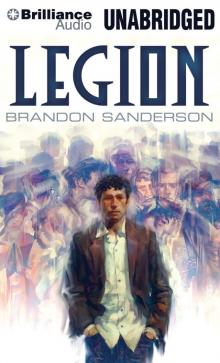 Legion
Legion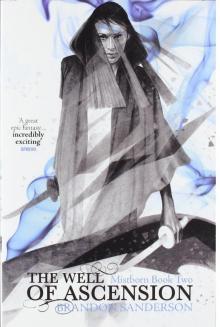 The Well of Ascension
The Well of Ascension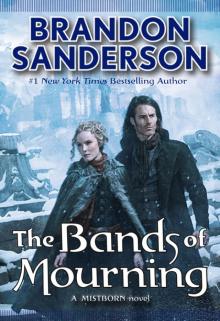 The Bands of Mourning
The Bands of Mourning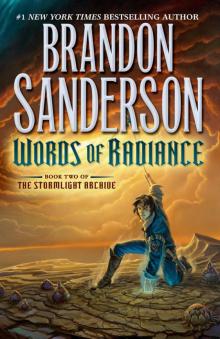 Words of Radiance
Words of Radiance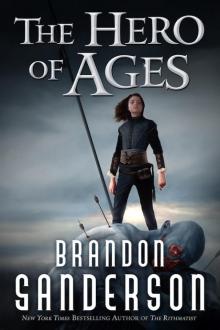 The Hero of Ages
The Hero of Ages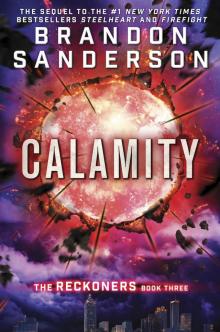 Calamity
Calamity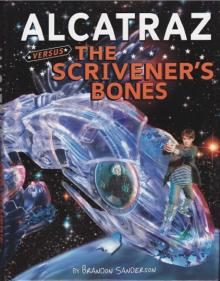 Alcatraz Versus the Scrivener's Bones
Alcatraz Versus the Scrivener's Bones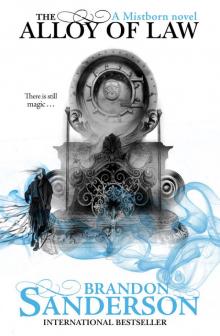 The Alloy of Law
The Alloy of Law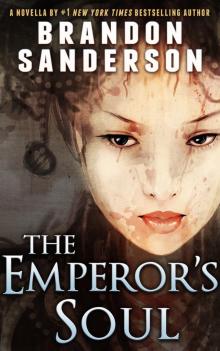 The Emperors Soul
The Emperors Soul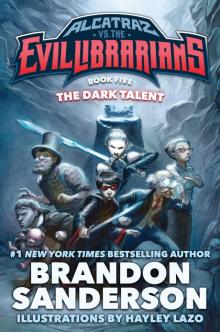 The Dark Talent
The Dark Talent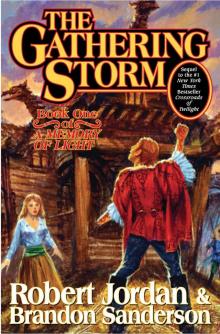 The Gathering Storm
The Gathering Storm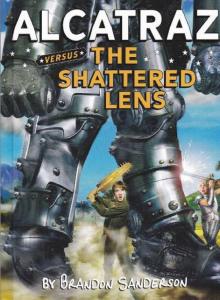 Alcatraz Versus the Shattered Lens
Alcatraz Versus the Shattered Lens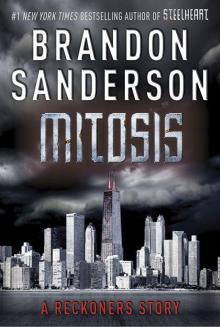 Mitosis
Mitosis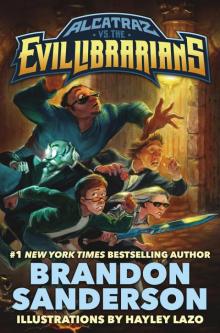 Alcatraz vs. The Evil Librarians
Alcatraz vs. The Evil Librarians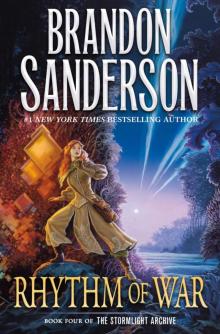 Rhythm of War (9781429952040)
Rhythm of War (9781429952040)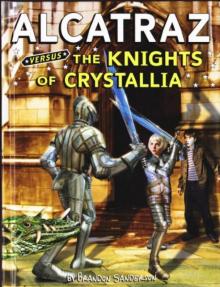 Alcatraz Versus the Knights of Crystallia
Alcatraz Versus the Knights of Crystallia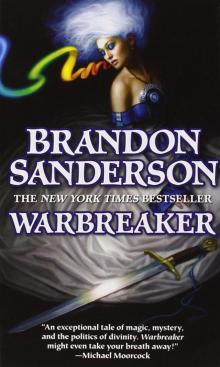 Warbreaker
Warbreaker Firstborn
Firstborn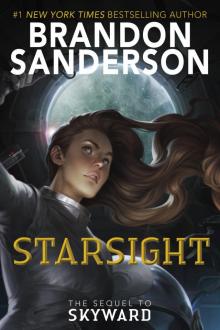 Starsight
Starsight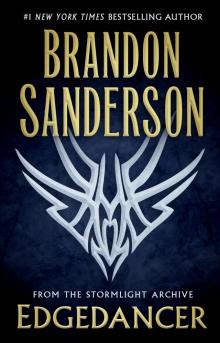 Edgedancer
Edgedancer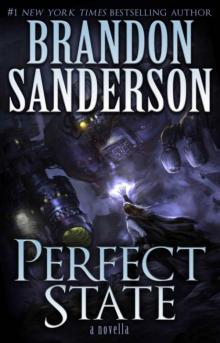 Perfect State
Perfect State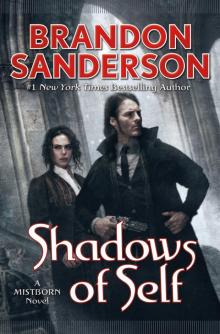 Shadows of Self
Shadows of Self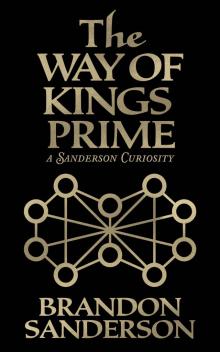 The Way of Kings Prime
The Way of Kings Prime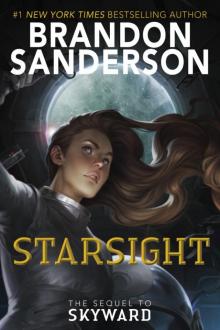 Starsight (US)
Starsight (US)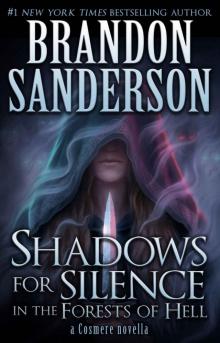 Shadows for Silence in the Forests of Hell
Shadows for Silence in the Forests of Hell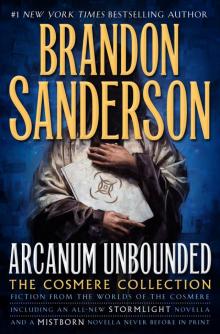 Arcanum Unbounded: The Cosmere Collection
Arcanum Unbounded: The Cosmere Collection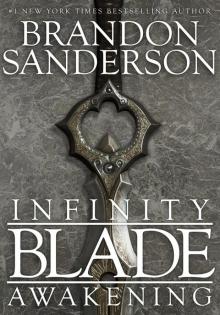 Awakening
Awakening Firefight
Firefight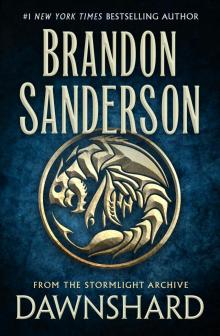 Dawnshard
Dawnshard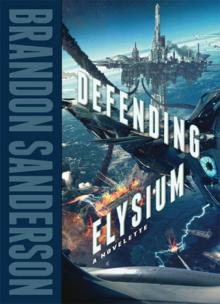 Defending Elysium
Defending Elysium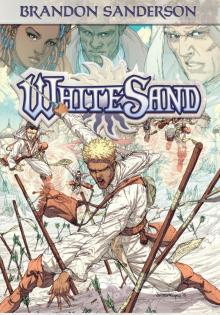 White Sand
White Sand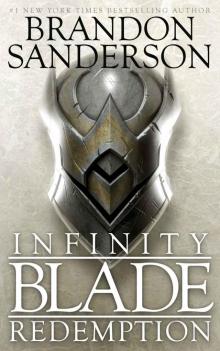 Infinity Blade: Redemption
Infinity Blade: Redemption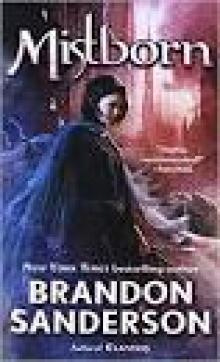 The Final Empire
The Final Empire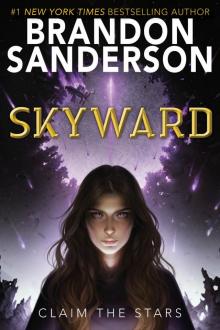 Skyward
Skyward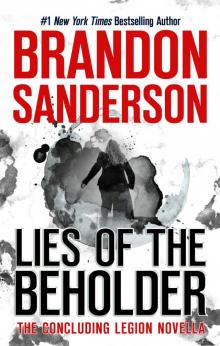 Lies of the Beholder
Lies of the Beholder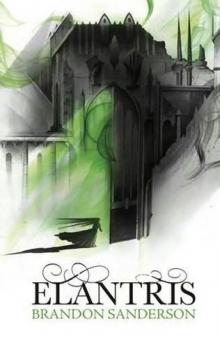 Elantris e-1
Elantris e-1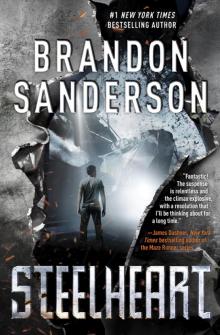 Steelheart r-1
Steelheart r-1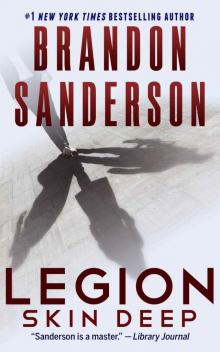 Legion: Skin Deep
Legion: Skin Deep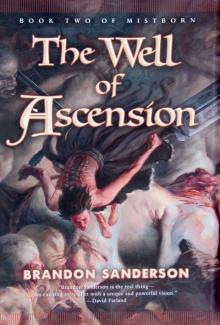 Well of Ascension
Well of Ascension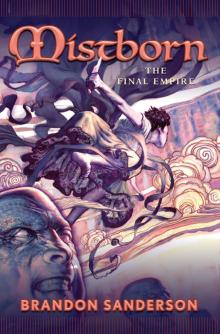 Mistborn
Mistborn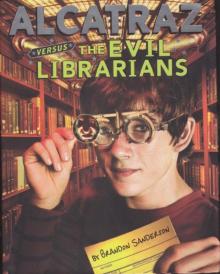 Alcatraz versus the Evil Librarians
Alcatraz versus the Evil Librarians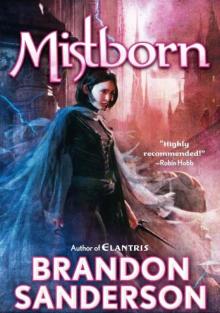 The Final Empire m-1
The Final Empire m-1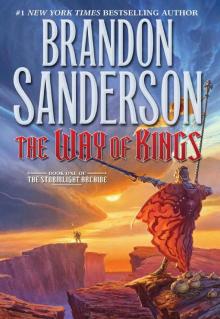 The Way of Kings (Stormlight Archive, The)
The Way of Kings (Stormlight Archive, The)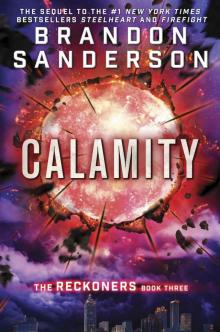 Calamity (The Reckoners)
Calamity (The Reckoners)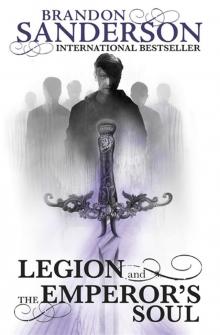 Legion and the Emperor's Soul
Legion and the Emperor's Soul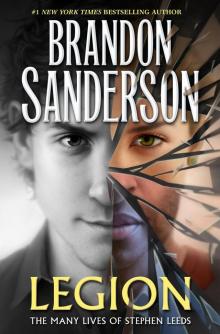 Legion: The Many Lives of Stephen Leeds
Legion: The Many Lives of Stephen Leeds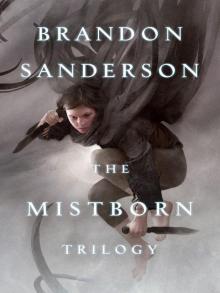 The Mistborn Trilogy
The Mistborn Trilogy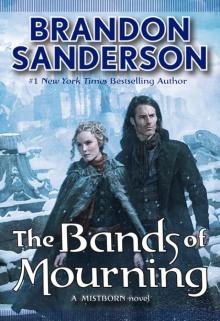 Bands of Mourning
Bands of Mourning Alcatraz
Alcatraz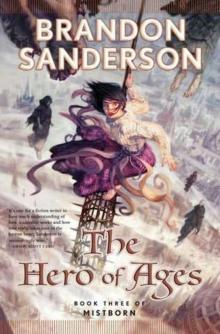 The Hero of Ages m-3
The Hero of Ages m-3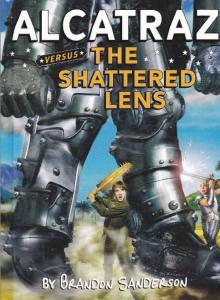 Alcatraz vs. the Shattered Lens
Alcatraz vs. the Shattered Lens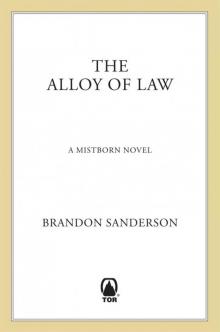 The Alloy of Law: A Mistborn Novel
The Alloy of Law: A Mistborn Novel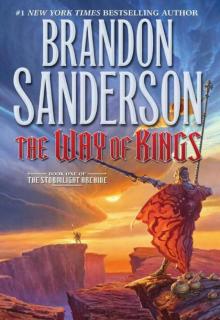 The Way of Kings sa-1
The Way of Kings sa-1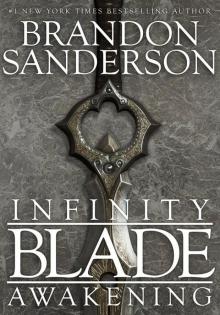 Infinity Blade: Awakening
Infinity Blade: Awakening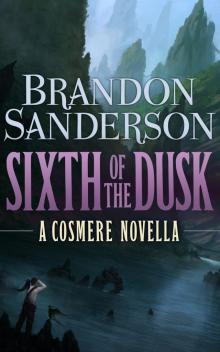 Sixth of the Dusk
Sixth of the Dusk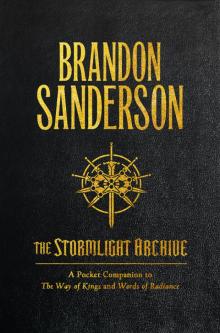 The Stormlight Archive
The Stormlight Archive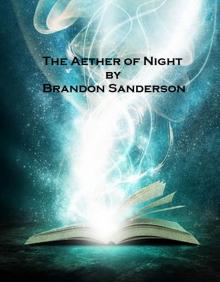 The Aether of Night
The Aether of Night